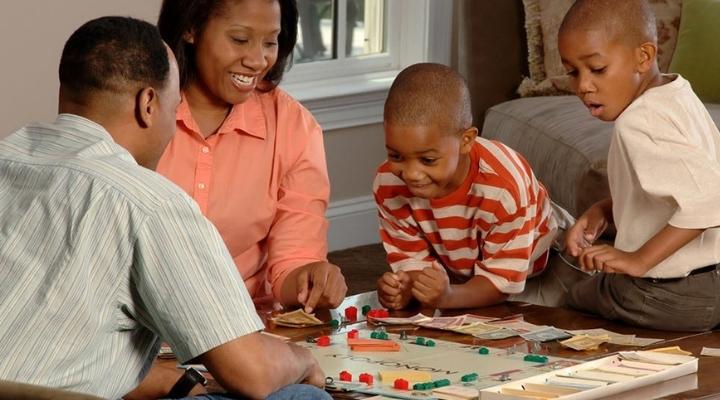10 Most Important Things Parents Can Do for Their Kids
Parenting is a complex and multifaceted journey that shapes the lives of both children and parents alike. In this article, we will delve into the 10 Most Important Things Parents Can Do for Their Kids, which lay the foundation for a healthy and successful future. As children grow and develop, the role of parents in their lives cannot be overstated. The impact of parental guidance and involvement resonates throughout a child’s life, influencing their emotional, social, cognitive, and physical development.
10 Most Important Things Parents Can Do for Their Kids
1. Unconditional Love and Support-
Perhaps the most fundamental aspect of parenting is providing unconditional love and support to children. Children need to feel loved, valued, and accepted for who they are, irrespective of their successes or failures. Unconditional love creates a secure attachment between parents and children, fostering emotional resilience and a positive self-image.
Related- 9 Tips To Balance Your Work And Family Life- As A Parent
2. Effective Communication-
Communication is the cornerstone of any healthy relationship, including the one between parents and children. Open and honest communication allows children to express their thoughts, feelings, and concerns, while parents can provide guidance, understanding, and reassurance. Listening actively to children fosters a sense of being heard and understood, nurturing their self-esteem and emotional development.
You can search for – Learning through Play
3. Setting Boundaries and Consistency-
While love and support are essential, so are boundaries. Children thrive in an environment where clear and consistent boundaries are established. Boundaries provide a sense of security and help children understand the difference between right and wrong. Consistency in enforcing these boundaries reinforces the message and reduces confusion for children.
Also check How To Deal With Toddler Tantrums And Behavior Issues
4. Quality Time Together-
In today’s fast-paced world, spending quality time with children can be challenging, but it’s crucial for their development. Engaging in activities together promotes bonding, builds memories, and fosters a strong parent-child relationship. Quality time can range from reading together before bed to participating in shared hobbies or simply having meaningful conversations.
5. Encouraging Independence-
As children grow, it’s vital to encourage their independence and decision-making skills. Allowing them to make age-appropriate choices and take responsibility for their actions helps develop their confidence, problem-solving abilities, and a sense of autonomy. Balancing guidance with the freedom to explore contributes to their personal growth.
6. Being a Role Model-
Children often learn by example, and parents serve as their primary role models. Behaviors, attitudes, and values displayed by parents are observed and internalized by their children. Demonstrating empathy, respect, integrity, and resilience sets a positive example that children can emulate throughout their lives.
You can also check- 6 Healthy & Tasty Breakfasts For Your Kids- You Must Know
7. Providing Educational Opportunities-
Education is a powerful tool that opens doors to a brighter future. Parents play a vital role in nurturing a love for learning in their children. Providing educational opportunities, whether through formal schooling or encouraging curiosity through exploration, helps children develop cognitive skills, critical thinking abilities, and a thirst for knowledge.
8. Instilling Empathy and Kindness-
In a world that can sometimes be harsh, teaching children empathy and kindness is crucial. Parents can help their children develop a sense of compassion by emphasizing the importance of understanding others’ feelings, perspectives, and experiences. Encouraging acts of kindness and volunteering cultivates a sense of social responsibility and contributes to a more empathetic society.
9. Managing Emotions-
Emotional intelligence is a skill that serves individuals well throughout their lives. Parents can help their children understand and manage their emotions by creating an environment where emotions are acknowledged and validated. Teaching children to identify and express their feelings in healthy ways contributes to their emotional well-being and their ability to navigate complex social interactions.
10. Fostering a Growth Mindset-
A growth mindset is a belief that abilities and intelligence can be developed through effort, practice, and learning from failures. Parents can instill a growth mindset by praising their children’s efforts, highlighting the value of perseverance, and reframing challenges as opportunities for growth. This mindset equips children with the resilience and determination needed to overcome obstacles and reach their full potential.
In conclusion, parenting is a journey filled with challenges and rewards, and the impact of parental actions and decisions can shape a child’s life trajectory. The ten key actions outlined in this article provide a comprehensive framework for parents to create a nurturing and supportive environment that promotes their children’s physical, emotional, cognitive, and social development. By providing unconditional love, effective communication, boundaries, quality time, encouragement, positive role modeling, educational opportunities, empathy, emotional management skills, and a growth mindset, parents lay the groundwork for their children’s success and well-being. As parents invest time, effort, and care into these aspects, they contribute not only to their children’s growth but also to the future of society as a whole.
Frequently Asked Questions-
How can I establish effective discipline for my child?
Establishing effective discipline involves setting clear boundaries, using consistent consequences, and focusing on positive reinforcement. It’s important to balance firmness with empathy and to tailor discipline strategies to your child’s age and personality.
What are some strategies for managing my child’s screen time?
Managing screen time is a common concern for parents in today’s digital age. Strategies include setting screen time limits, encouraging a balance between screen-based and outdoor activities, and fostering open conversations about the benefits and drawbacks of technology.
How can I help my child develop good study habits?
Helping children develop good study habits involves creating a structured and organized study environment, setting a regular study schedule, providing resources and support, and teaching effective study techniques like summarizing, taking breaks, and self-assessment.
What’s the best way to handle my child’s tantrums or emotional outbursts?
Tantrums and emotional outbursts are common during a child’s development. It’s important to remain calm, acknowledge their feelings, and provide a safe space for them to express themselves. Teaching them healthy ways to manage their emotions and using techniques like deep breathing can also be helpful.
How do I talk to my child about sensitive topics like puberty, relationships, and personal safety?
Addressing sensitive topics requires age-appropriate conversations that are honest, open, and free of judgment. Using clear and accurate language, answering their questions, and creating an atmosphere of trust and comfort is essential when discussing these subjects.










